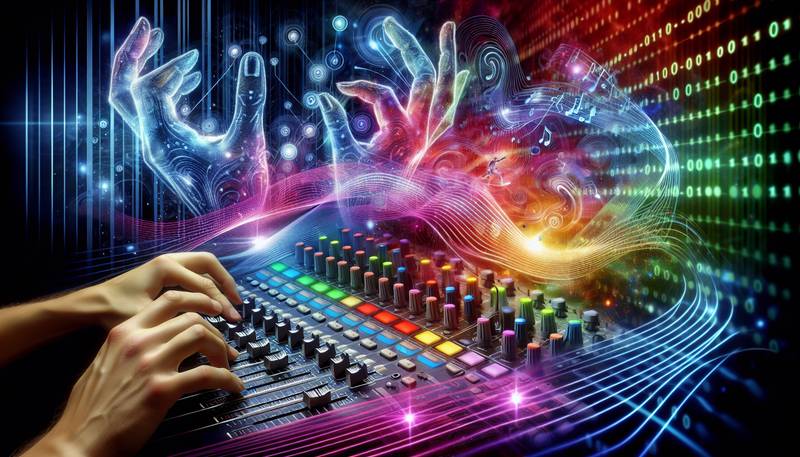Tech in Music: How Digital Technology is Reshaping Soundscapes

Introduction
Technology has always played a significant role in music. From the earliest instruments made of bone and wood to the electric guitar, technology has shaped the way we create and enjoy music. In recent years, digital technology has revolutionized the music industry, transforming sound in ways that were unimaginable just a few decades ago. In this article, we'll explore the ways in which digital technology is shaping sound and changing the music landscape.
The Rise of Digital Music Production
Digital music production has made it easier and more affordable for artists to create and distribute their music. With software like Pro Tools, Ableton Live, and FL Studio, musicians can record, edit, and produce their own music from the comfort of their own homes. This has democratized the music industry, giving independent artists the opportunity to compete with major labels.
Not only has digital technology made music production more accessible, but it has also expanded the creative possibilities for artists. With digital audio workstations (DAWs), musicians can manipulate sound in ways that were once impossible. From pitch correction to time-stretching, the digital tools available to producers have opened up a new world of sonic possibilities.
The Impact of Digital Technology on Sound Quality
One of the most significant ways digital technology has shaped sound is through improvements in sound quality. Digital recording and playback equipment have a much higher fidelity than their analog counterparts, resulting in clearer, more accurate sound reproduction.
However, some argue that digital technology has also had a negative impact on sound quality. The loudness war, in which music is mastered at increasingly high volumes to stand out on streaming platforms, has led to a loss of dynamic range in many recordings. Additionally, the compression used in digital audio formats like MP3 can result in a loss of audio quality.
The Evolution of Music Distribution
Digital technology has also transformed the way we access and consume music. With the rise of streaming services like Spotify, Apple Music, and Tidal, music is more accessible than ever before. These platforms have made it possible for listeners to access vast libraries of music from their smartphones, computers, or smart speakers.
While streaming has made music more accessible, it has also impacted the way artists are compensated for their work. The rise of streaming has led to a decline in physical album sales and digital downloads, resulting in lower revenue for artists. As a result, many musicians are turning to alternative forms of income, such as touring and merchandise sales.
The Role of Artificial Intelligence in Music Creation
Artificial intelligence is playing an increasingly important role in music creation. AI algorithms can analyze music and create new compositions based on the patterns they identify. This has led to the rise of "algorithmic composition," in which computers can create music autonomously.
While some see AI as a threat to human creativity, others see it as a valuable tool for artists. AI can be used to generate new ideas, create complex arrangements, and even assist in the mixing and mastering process. As AI technology continues to evolve, it's likely that we'll see even more applications of AI in music creation.
The Future of Music Technology
The future of music technology is full of exciting possibilities. Virtual reality and augmented reality have the potential to create immersive musical experiences, allowing listeners to feel like they're inside the music. 3D audio technology, which creates a sense of spatial depth in sound, is also on the rise, offering new opportunities for artists to create immersive soundscapes.
As technology continues to advance, it's clear that the music industry will continue to evolve. Digital technology has already had a profound impact on the way we create and enjoy music, and it's likely that we'll continue to see new innovations shaping the sound of the future.
Conclusion
Technology has always been a driving force in the evolution of music, and digital technology is no exception. From digital music production to streaming services and AI, digital technology has transformed the way we create and consume music. While there are challenges to overcome, such as the consequences of the loudness war and the impact of streaming on artist revenue, digital technology has also opened up a world of creative possibilities for artists. As we look to the future, it's clear that technology will continue to shape the sound of music in exciting and innovative ways.


